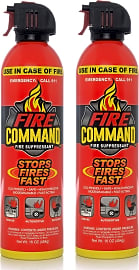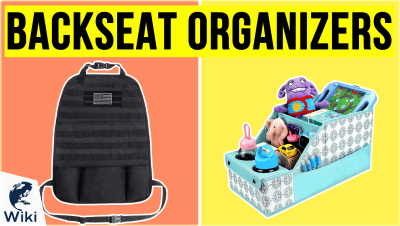The 8 Best Automotive Fire Extinguishers

This wiki has been updated 25 times since it was first published in March of 2018. Although designed to be as safe as possible, vehicles still house a host of flammable surfaces and liquids, which is why you’ll want to grab one of these automotive fire extinguishers for your emergency kit. We’ve included options to suit a range of budgets that are ideal for everything from compact cars to RVs. Just remember to always use according to the instructions. When users buy our independently chosen editorial picks, we may earn commissions to help fund the Wiki.
Editor's Notes
June 11, 2020:
Removed the Cold Fire Tactical in favor of the Kidde Auto FX5 II.
Car fires will most often be caused by ignited fuel and by faulty electrical wiring/circuits. These sorts of fires fall under class B and class C fires respectively. Such fires can be extinguished using either a class B or class C fire extinguisher, or a class BC fire extinguisher. What makes a fire extinguisher fall under a certain category (A, B, and/or C) is what sort of agent it uses to put out the fire. Class BC agents like sodium bicarbonate are used in models such as the Kidde Auto FX5 II. Other BC extinguishers like the Amerex B410T use potassium bicarbonate which is twice as effective on liquid fires (class B) than sodium bicarbonate. So since car fires are most often class B or C, make sure you pick up a class BC extinguisher.
The emergence of electric vehicles presents a different problem. When damaged, large lithium-ion batteries can easily cause massive fires. However, even though they are electrical, class BC extinguishers are not very effective against lithium-ion fires. As such, don't expect the extinguisher you buy to be of much use if your EV's battery catches fire. Just park at a safe location, exit the vehicle, move far away, and call emergency services. According to experts, these sorts of fires need to be fought with large amounts of water, while BC extinguishers use dry chemical agents.
When encountering a fire, follow proper safety precautions as specified by experts like the National Fire Protection Association.













